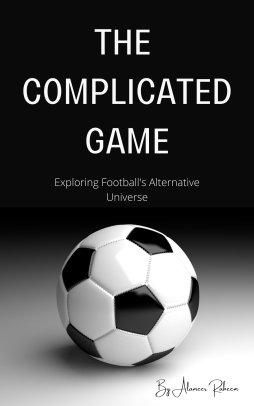More Than They Believe: The Relationship Between Education and Athletic Success
Football, beyond being a game of strategy, athleticism, and passion, often serves as a powerful metaphor for life itself. In our new series, "More Than They Believe," we delve deep into the world of football to uncover the profound lessons it offers, extending far beyond the pitch. From the triumphs of victory to the trials of defeat, each article will explore how the beautiful game mirrors the complexities of existence and imparts invaluable wisdom for navigating life's challenges.

The prevailing belief in our societies is that athletic success directly conflicts with academic achievement, reflecting our experiences in school life, where exceptional athletes often skipped classes because they were more focused on the game.
Costa Rica surprised the world in the 2014 World Cup, advancing to the quarter-finals and contributing to the elimination of England and Italy in the group stage. They were only stopped by a stroke of bad luck against the Netherlands, moments away from playing in the semi-finals. Many wondered at the time: what's happening with this team? The answer came from the former Costa Rican national team goalkeeper, Jabelo Conejo, who attributed all their athletic success to advancements in the education system.
Conejo stated in remarks to the German agency, "An academically qualified person has the necessary maturity to assess problems, handle pressure, and demonstrate effectiveness and responsibility in their work." The goalkeeper, who represented his country in the 1990 World Cup, added, "Many of our players are professionals, and most importantly, 95% of them have attended universities."
One of the stars of the national team in the Brazil World Cup was Borges, who commented on this issue: "Education contributes to the player's ability to understand the coach's instructions and analyze different situations in the game." While this statement may seem theoretical, the success of La Masia, Barcelona's renowned youth academy, isn't solely attributed to its rigorous sports system but also to its advanced educational system. Students are required to pass academic stages and undergo crucial lessons in languages, mathematics, and problem-solving methods.
A look at Aspire Academy in Qatar, mirroring La Masia, reveals how it provides the best teachers in subjects relevant to sports competitions. Physics and mathematics professors are crucial in developing students' mental activity to understand problems, grasp phenomena, and intelligently tackle challenges.
It's a mistake to believe that football is merely physical or tactical preparation because the game is far more complex. One aspect of this complexity is training athletes' mental agility to devise quick solutions to sudden problems. To achieve this, young minds must be exposed to various challenges that compel them to evolve and equip them with the ability to swiftly deal with emerging events.
Hence, the focus of our discussion is not solely on obtaining a university degree as a prerequisite for knowledge or in the art of physical generation. Rather, it lies in providing environments and conditions for engaging in mental challenges, regardless of their educational framework. I once read that companies with a higher percentage of employees committed to reading are also the most creative in problem-solving. This is another testament to the importance of education and culture - irrespective of their formal status - and their ability to make a difference in challenging situations.